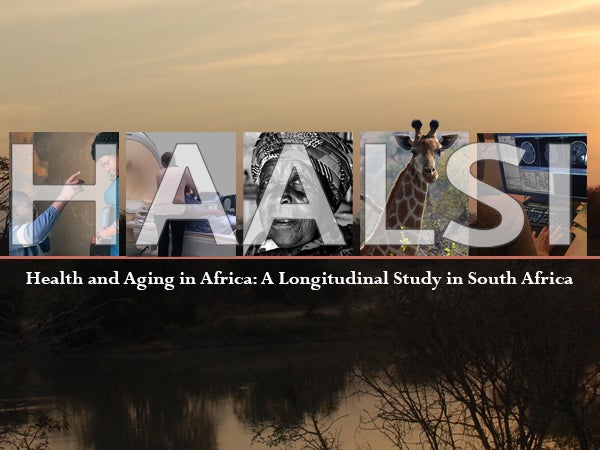Scientists affiliated with Health and Aging in Africa: A Longitudinal Study in South Africa (HAALSI) have found that telomere length is associated with health and aging biomarkers (e.g., age, mortality, blood pressure) in much the same way that they are associated with these biomarkers in more frequently studied high-income countries.
Can being optimistic help women live both a healthier and longer life?
Previous research has linked an optimistic attitude with a longer life, but now a new study authored by a team that includes our faculty member Laura Kubzansky expands the positive benefits of optimism to include a healthier life as well.
Controlling blood pressure at the population level is associated with large life expectancy gains in Indonesia
Harvard Bell Fellow Nikkil Sudharsanan, PhD, has authored a paper published in the International Journal of Epidemiology that reveals that population policies to control systolic blood pressure in Indonesia could result in large (5-6 year) gains in adult life expectancy for men and women across the entire wealth distribution of the country. Given that hypertension is high and rising in many low- and middle-income countries, the paper calls for more…
Hospitalized patients treated by female doctors found to have lower mortality and readmission rates
Harvard Pop Center faculty member Ashish Jha, MD, is an author on a paper published in JAMA Internal Medicine that has found differences in patient outcomes in those treated by female versus male physicians. Learn more about the study in these news items: U.S. News & World Report, Vox, and in this press release by the Harvard T.H. Chan School of Public Health. The study also received attention in this…
Speed of heart rate recovery may help to predict mortality risk
Harvard Pop Center Director Lisa Berkman, PhD, and visiting scientist Cathal McCrory, PhD, are authors on a paper published in Circulation Research that finds that those among a group of age 50 and older participants who had the slowest heart rate recovery were more than twice as likely to die over the following four years than those who recovered the fastest.
Could temperature deviation from past neighboring years increase mortality risk for elderly?
Harvard RWJF Health & Society Scholar Colleen Reid, PhD is an author on a paper published in International Journal of Biometeorology that examines the effects of abnormal weather patterns (temperature deviation compared to previous years) on elderly mortality.
Lisa Berkman streaming live on uptick in death rates of middle-aged white Americans on MPR Tues., Nov. 10
Join Kerri Miller of Minnesota Public Radio (MPR) on Tuesday, November 10 at 10:00 a.m. ET when she will talk with Lisa Berkman, PhD, director of the Harvard Pop Center, about the recent piece in the New York Times on the increase in deaths among middle-aged white Americans.
Why do women outlive men? Former Harvard Bell Fellow sheds light
Hiram Beltran-Sanchez, PhD, a former Harvard Pop Center Bell Fellow, is lead author on a study published in the Proceedings of the National Academy of Sciences that reveals that “excess male mortality” appears to be caused by cardiovascular disease and smoking-related deaths, as opposed to just biological differences between the genders. Learn more about the study in an article in the Los Angeles Times.
Increases in U.S. diurnal temperature associated with increased mortality, especially in elderly
Harvard RWJF Scholar Colleen Reid, PhD, has co-authored a study published in International Journal of Biometeorology that explores the association between diurnal temperature range (DTR) and mortality in 95 large U.S. communities. While much research has focused on Asia, Reid’s study examines the U.S., and shows a statistically significant association between DTR and mortality, driven mainly by effects of DTR on cardiovascular and respiratory mortality in the elderly.
Decline in HIV mortality due to antiretroviral treatment not same for all groups in rural South African community
Harvard Pop Center affiliated researchers Kathleen Kahn, PhD, and Stephen Tollman, PhD, and colleagues have published a study in Global Health Action that evaluates the HIV mortality rates on a rural South African community from 2007-2010, when antiretroviral treatment (ART) was rolled out. Factors such as gender, age, location (distance from health center), length of residence, country of origin, transportation ownership, and level of education had an impact on the…
